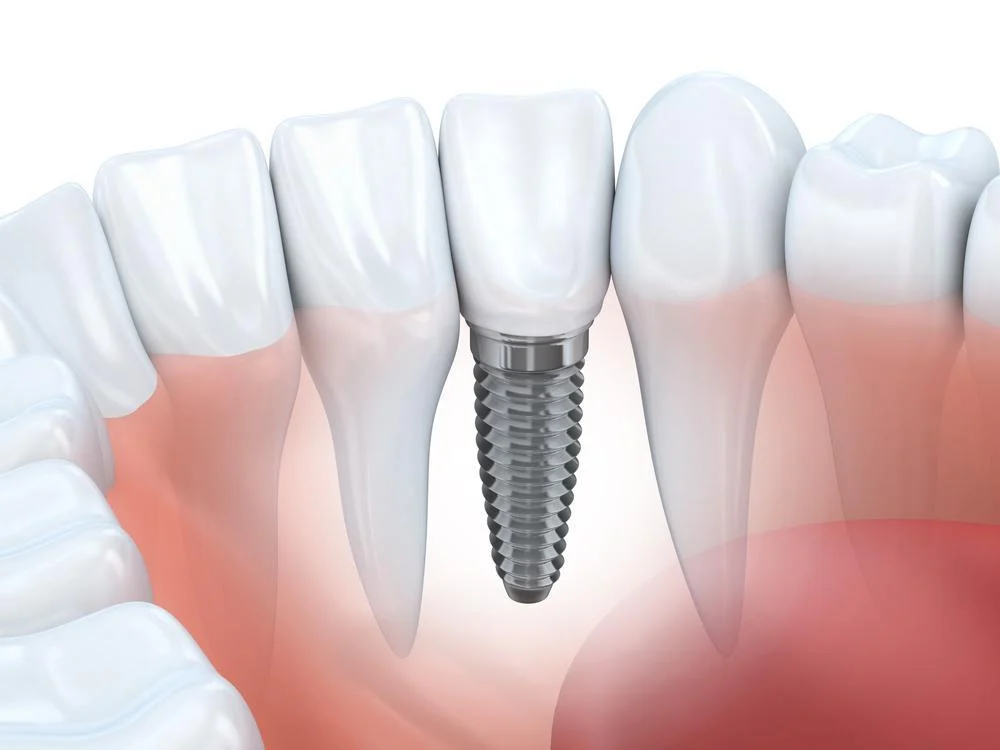If your smile is extremely important to you, then you wouldn’t want to lose a single tooth. However, if you’ve experienced tooth loss for any reason, you’ll want to replace your missing teeth with affordable dental implants in Las Vegas. This tooth-replacement option won’t fail to restore your healthy and beautiful smile.
However, a lack of information about implants may perpetuate misconceptions about them. For this reason, it’s best to separate the facts from fiction and address common dental implant myths to help you decide if this dental solution is right for you.
What are Dental Implants?
Dental implants are a revolutionary solution for replacing missing teeth. These artificial tooth roots, typically made from titanium or ceramic materials, are surgically inserted into the jawbone. They mimic the function of natural tooth roots, providing a stable foundation for crowns, bridges, or dentures. Dental implants not only restore the appearance of your smile but also improve your oral health by preventing bone loss and maintaining the structure of your jaw.
This makes them a popular and effective choice for individuals looking to replace missing teeth with a long-lasting, natural-looking option.
Dental Implants: Myths and Facts about Dental Implant Myths
MYTH #1: “Dental implant candidates need to have perfect teeth.”
FACT: Debunking this myth requires you to have a clear idea of what dental implants are and how they work. Since these are small, screw-like titanium posts implanted into your jaw to act as substitute tooth roots, you’ll need healthy gums and an adequate jawbone foundation – not perfect teeth. However, if your jawbone isn’t dense enough or is too soft to support the implant, your dental care provider can build it back up by performing a bone grafting procedure.
MYTH #2: “Dental implants aren’t safe for your mouth.”
FACT: It’s only natural to feel uncomfortable about the idea of having a metal implant inserted into your gum tissue and jawbone. However, dental implants actually work to protect your overall mouth health by preserving your other teeth and your jawbone.
When you lose a tooth, its surrounding teeth will eventually drift into the gap left by your missing tooth. The best way to keep your other teeth in place is to fill this space with a dental implant. Unlike other tooth-replacement options, implants eliminate the need for cutting down adjacent teeth.
Furthermore, the absence of natural tooth roots anchored to your jawbone can cause that section of bone to crumble and die. Since implants act as artificial tooth roots, they work to preserve your facial structure and keep your jawbone intact.
MYTH #3: “Dental implants involve a painful procedure.”
FACT: Although any type of surgery isn’t exactly fun, they aren’t as severe as what most patients suspect. In fact, many patients report that the process of getting them was less painful than having a tooth extraction.
MYTH #4: “You can’t get a dental implant years after you had a tooth extraction.”
FACT: Even if your tooth was extracted years ago, you won’t be immediately disqualified from getting an implant. You may still be able to switch to one even if you’ve been using a bridge or dentures since you got your tooth pulled. In other words, the number of years post-extraction and your existing artificial tooth won’t determine your qualification.
The most important factor for an implant is the health of your jawbone. If your bone density has significantly decreased since your last extraction, the dental implant won’t be able to adhere to your bone. During your consultation, your dentist will check to see if your bone density is strong enough to provide the implants with a solid foundation.
MYTH #5: “Dental implants change color.”
FACT: Natural teeth may experience staining due to highly pigmented foods and drinks, poor dental hygiene, tobacco use, certain medications, genetics, trauma, excessive fluoride, and age.
Thankfully, you won’t have to worry about stains clinging onto the crowns of your dental implants because, with proper care, they have less of a chance of changing color compared to natural teeth. Contrary to popular belief, maintenance dental implants are designed to be low-maintenance and can be cared for similarly to natural teeth.
Since implant crowns are usually made from porcelain and ceramic, they’re naturally resistant to staining. However, when abrasive items disrupt or break the crown’s glaze, the crown’s risk for discoloration increases. You can keep your dental implants safe by adhering to your dentist’s recommendations and following an excellent oral care routine.
MYTH #6: “Dental implants look and feel unnatural.”
FACT: When it comes to aesthetics, the tooth-shaped parts of dental implants won’t disappoint. Since they’re specifically designed to match the color, shape, and appearance of your existing teeth, you can expect them to look natural. In other words, they’re able to integrate seamlessly with the rest of your smile. Advancements in dental implant surgeries have made the procedures minimally invasive, ensuring that the implants look and feel just like natural teeth.
While dentures and bridges can potentially slip or make noise while you chew or talk, implants stay in place like your other teeth. Compared to other tooth-replacement alternatives, dental implants can provide you with the most realistic experience.
MYTH #7: “Dental implants won’t last more than ten years.”
FACT: Implants are created to last a lifetime. If you’re looking to find a tooth-replacement option that can provide you with a long-lasting solution, your best bet is dental implants.
Dental Implant Procedures and Recovery
The dental implant procedure is a multi-step process designed to ensure the best possible outcome. It begins with the surgical insertion of the implant into the jawbone. This is followed by a healing period of 3-6 months, during which the titanium implant bonds with the surrounding bone and gums, creating a strong and stable foundation. Once the healing is complete, a custom-made crown or bridge is attached to the implant, restoring the natural appearance and function of the tooth.
Recovery from dental implant surgery is generally smooth and quick. Most patients can return to their normal activities within a few days. The procedure is performed under local anesthesia, ensuring minimal discomfort. While some mild swelling and bruising may occur, these symptoms can be easily managed with painkillers and ice packs. Overall, the recovery process is straightforward, allowing you to enjoy the benefits of your new dental implant with minimal downtime.
Am I a Candidate for Dental Implants?
Dental implants are a versatile solution suitable for individuals of all ages who have lost one or more teeth due to decay, injury, or disease. However, certain factors can influence your eligibility for dental implants. Key considerations include bone density and gum health. During your consultation, your dentist will assess your oral health to determine if dental implants are the best option for you.
Ideal candidates for dental implants typically:
- Have sufficient bone density to support the implant
- Possess healthy gums and surrounding teeth
- Are in good overall health
- Are committed to maintaining good oral hygiene habits
By meeting these criteria, you can increase the likelihood of a successful dental implant procedure and enjoy the long-term benefits of this tooth replacement option.
Separating Fact from Fiction: Dental Implant Costs and Insurance
One of the most common myths about dental implants is that they are prohibitively expensive and not covered by insurance. While it’s true that dental implants may have a higher upfront cost compared to other tooth replacement options, they are a worthwhile investment in the long run. The cost of dental implants varies based on factors such as location, the number of implants needed, and the type of crown or bridge used. On average, a single dental implant can range from $1,000 to $3,000.
Despite the initial cost, dental implants offer significant long-term benefits, including improved oral health and a natural-looking smile. Some dental insurance plans may cover part or all of the cost of dental implants, depending on your policy and eligibility. It’s essential to consult with your dentist and insurance provider to understand the costs involved and determine the best course of treatment.
In conclusion, dental implants are a popular and effective solution for individuals with missing teeth. While there may be myths and misconceptions surrounding dental implants, the facts show that they are a valuable investment in your oral health and overall well-being. By separating fact from fiction, you can make an informed decision about whether dental implants are the right choice for you.
Are You In Need of Affordable Dental Implants for Replacing Missing Teeth in Las Vegas?
The warmhearted and dedicated team of dental experts at Dee for Dentist offers the best in high-tech dentistry to give you comfortable and convenient treatment with optimal outcomes. Call our office at (702) 870-3818 or (702) 586-7800, or fill out a contact form for your consultation today!

